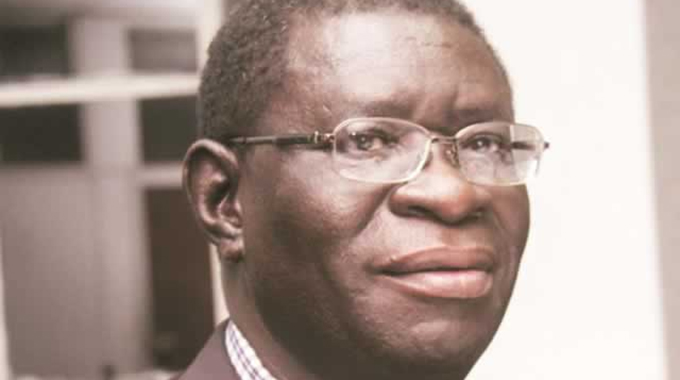Hands off Hwange, Parly told

Zvamaida Murwira Senior Reporter
Parliament has no authority to exercise its oversight role over private companies such as Hwange Colliery Company, neither does it have lawful powers to summon an administrator appointed by Government to appear before it, Attorney-General Advocate Prince Machaya has said.
He said the Reconstruction of State Indebted and Insolvency Companies Act, which was invoked by the Government to place Hwange Colliery Company under the control of an administrator was consistent with the Constitution.
Adv Machaya said this yesterday while giving oral evidence before Parliament’s Portfolio Committee on Mines and Mining Development.
His comments followed concerns raised by legislators who were livid after Government-appointed administrator for Hwange Colliery Company, Mr Bekithemba Moyo, failed to welcome them at the Colliery last weekend where they wanted to make a familiarisation tour and make inquiries on the company.
“In the case of companies which are put under reconstruction, the fact that they are indebted to the State does not necessarily make them Government agencies,” said Adv Machaya.
“Parliament cannot exercise its powers over a company like Hwange, any power that it would not otherwise have if it is not under an order of reconstruction because it is a privately-controlled company.
“It has got its shareholders and other people. If there was no order of reconstruction, Parliament cannot play its oversight over Hwange. The order of reconstruction itself does not make Hwange an institution of Government.”
Adv Machaya said Parliament had no powers to invite the administrator.
“The administrator, in terms of the Act, accounts to the Minister of Justice who appointed him,” he said.
“He is not accountable to anyone else except to the minister. You cannot do it by extension to say he was appointed by the minister, so he is accountable to Parliament.”
Adv Machaya said if Parliament wanted to follow up on a company that was State-indebted, they would have to do it using the relevant ministry.
“Parliament has every right to follow the debt through the Minister of Justice and Minister of Mines and call for explanation on what has happened,” he said.
“All I am saying is Hwange, as an institution, is not a Government-controlled entity.
“Additional powers would have to be inserted in the Constitution to give Parliament the right to follow Government revenue wherever they would have invested, notwithstanding that the institution is not controlled by the Government.
“There will have to be specific powers. That is my view.”
Adv Machaya said while Parliament had no authority over private institution, Government had powers to place a private concern under reconstruction if it was indebted to it, so as to safeguard public funds.
“The Reconstruction Act applies across the board, it applies to entities that are not controlled by the Government,” he said.
Magwegwe MP, Mr Anele Ndebele (MDC-Alliance), said the Reconstruction Act was unconstitutional in that it took away labour rights for workers and those of shareholders and any law that does that “even for a minute” was a bad legal instrument.
But Adv Machaya did not agree. “I am not a policy maker, but in my view it (the Reconstruction Act) does not contravene the Constitution,” he said.
“The whole purpose of it is to enable the Government to quickly follow after public funds and to that extent and as far as Government is concerned, it is a good law.
“Hwange is still a private company. Nothing has changed except that the authorities and powers of shareholders are now vested in the administrator. That is what the Act seeks to achieve.”
The legislators differed with the views of Adv Machaya, saying they were empowered to follow through wherever Government had put its money as part of their oversight and representative role.










Comments